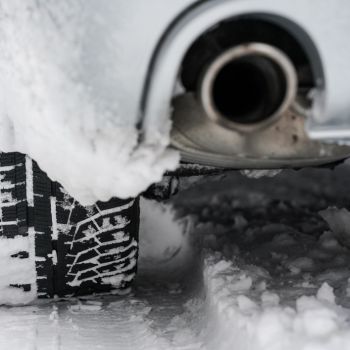Because the exhaust system is located close to the ground, it's especially vulnerable during winter. Ice, salt, and road debris can all cause serious damage, leading to costly repairs and even safety risks. Understanding these threats can help you protect your vehicle and stay safe on the road. After a storm, roads often become filled with potholes and sharp debris. These hazards can hit your exhaust system directly, causing dents, cracks, or even complete failure. Even small rocks can loosen bolts or damage components over time, so it's important to be cautious when driving on rough roads. Winter weather brings more than just cold—it brings salt, ice, and moisture that can severely damage your car’s undercarriage. Rock salt is highly corrosive and can speed up rusting on metal parts of the exhaust system. Snow and ice can also accumulate, leading to internal corrosion and potential leaks. Here’s how this affects your car: After a heavy snowfall or salt application, make sure to wash your car—especially the undercarriage—to remove any remaining salt and prevent long-term damage. If your car gets stuck in snow, digging it out can be a challenge. But don’t forget to check the exhaust system first. Snow and ice can block the tailpipe, causing dangerous backpressure. If the exhaust can't vent properly, carbon monoxide can enter your vehicle, which is extremely dangerous. When trying to get your car moving: Short trips—under 20 minutes—can trap moisture inside the exhaust system. Without enough heat, the moisture doesn’t evaporate, leading to condensation and eventual rust. This can cause cracked pipes, broken gaskets, and damaged hangers, which may result in loud noises or poor performance. Watch for these warning signs that your exhaust system might be failing: If you notice any of these issues, it's important to have your exhaust system inspected as soon as possible. Ignoring the problem can lead to more expensive repairs and even safety hazards. Don’t wait—schedule an inspection at DaSilva’s Auto Body today. Our experts can identify and fix any rust or damage to keep your exhaust system running smoothly and safely all winter long. A general model, suitable for thick and thin clothes as well as pants. Machine realized the continuous operation of automatic folding and automatic packing of batches clothing, which improves the standardization and folding efficiency of clothing folding, greatly reducing labor costs, suitable for various types of clothing enterprises. Folding Machine For Pants,Clothes Folding Robot,Self Clothing Folding Machine,Textile Folding Equipment SHENZHEN LINGCHUANG ZHUOYUE TECHNOLOGY CO., LTD , https://www.lcautosz.com Your car’s exhaust system plays a crucial role in engine performance by directing and neutralizing harmful gases produced during combustion. It helps reduce carbon monoxide emissions and also affects how quietly your engine runs.
Your car’s exhaust system plays a crucial role in engine performance by directing and neutralizing harmful gases produced during combustion. It helps reduce carbon monoxide emissions and also affects how quietly your engine runs.Road Debris
Salt and Snow
Digging Your Car Out
Moisture Exposure
Signs of Damage